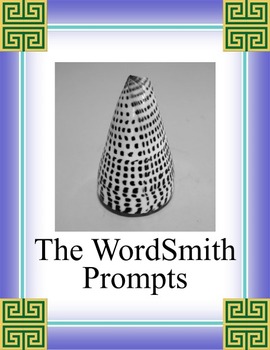Dracula: Study Prompts
Paka Mdogo's English Store
63 Followers
Grade Levels
9th - 12th
Subjects
Resource Type
Standards
CCSSRL.9-10.1
CCSSRL.9-10.2
CCSSRL.9-10.3
CCSSRL.9-10.5
CCSSRL.9-10.6
Formats Included
- PDF
Pages
17 pages
Paka Mdogo's English Store
63 Followers
What educators are saying
I used this resource as part of a Literature Circles unit at the end of the year and it worked very well with my 11th graders.
Description
This 17-page resource is a set of short writing tasks, and formal essay questions in the style of AP and IB examinations. The initial tasks focus student attention on significant aspects of each chapter and build up a full understanding of what Bram Stoker is trying to achieve, how he is trying to achieve it, and how successful he has been. The chapter-based questions can, additionally, be used as a basis for class discussion, and the essay topics as an invaluable tool for pre-examination revision and rehearsal. At a time-saving level, teachers will be relieved of the need to develop their own units of study for the novel, and to seek out relevant questions from past examinations. “These prompts are a terrific tool for generating class discussions, creating short answer exams, or longer essay assignments. I have purchased a number of them and am impressed with each one” (from the LitWorks.com Commendations page).
Total Pages
17 pages
Answer Key
Rubric only
Teaching Duration
N/A
Report this resource to TPT
Reported resources will be reviewed by our team. Report this resource to let us know if this resource violates TPT’s content guidelines.
Standards
to see state-specific standards (only available in the US).
CCSSRL.9-10.1
Cite strong and thorough textual evidence to support analysis of what the text says explicitly as well as inferences drawn from the text.
CCSSRL.9-10.2
Determine a theme or central idea of a text and analyze in detail its development over the course of the text, including how it emerges and is shaped and refined by specific details; provide an objective summary of the text.
CCSSRL.9-10.3
Analyze how complex characters (e.g., those with multiple or conflicting motivations) develop over the course of a text, interact with other characters, and advance the plot or develop the theme.
CCSSRL.9-10.5
Analyze how an author’s choices concerning how to structure a text, order events within it (e.g., parallel plots), and manipulate time (e.g., pacing, flashbacks) create such effects as mystery, tension, or surprise.
CCSSRL.9-10.6
Analyze a particular point of view or cultural experience reflected in a work of literature from outside the United States, drawing on a wide reading of world literature.


